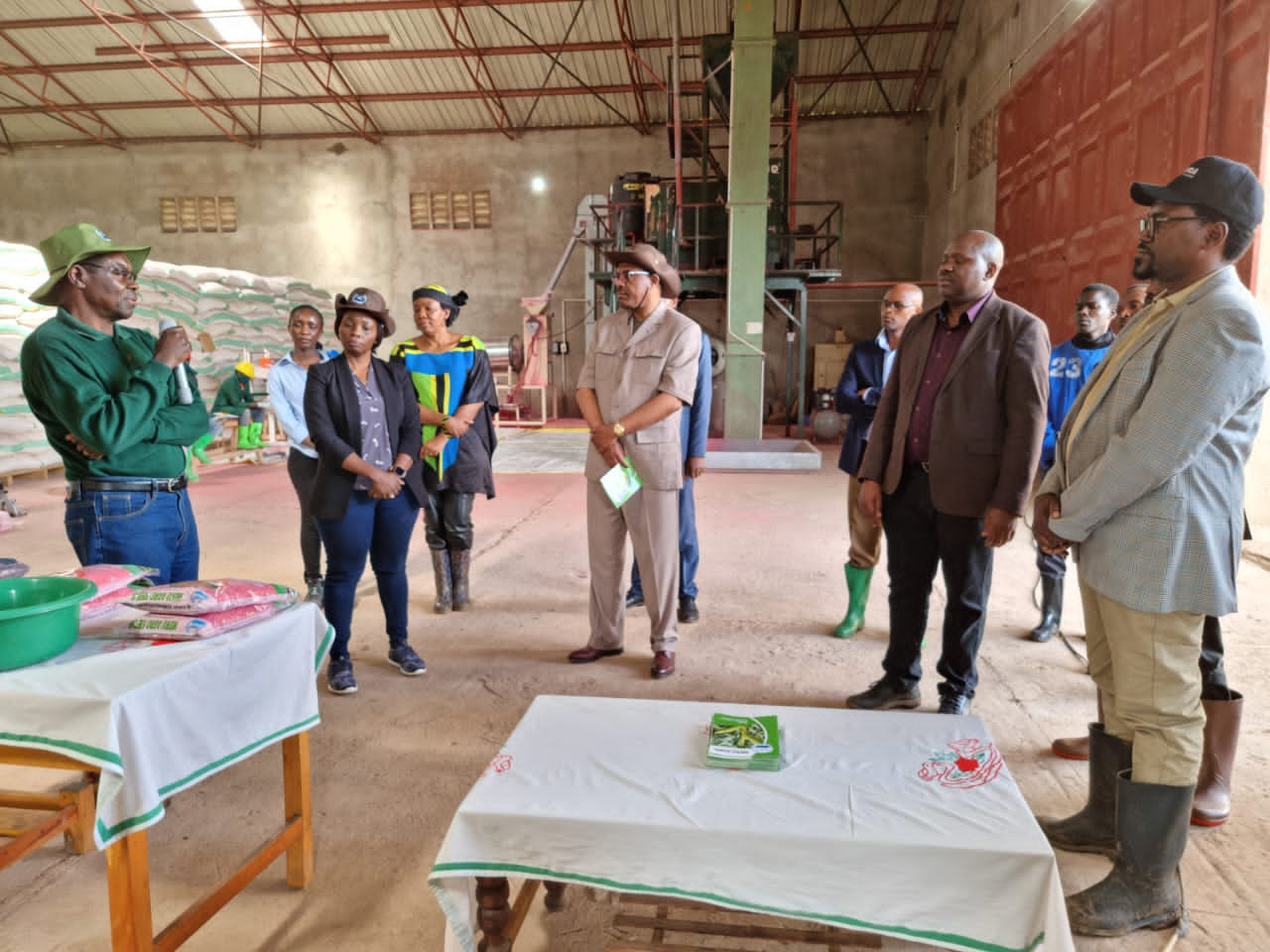Strengthening local private sector companies in seed production, fostering public-private partnerships, and increasing the use of improved seed varieties are critical steps towards achieving food security and economic growth.
To sustain and improve its food system transformation, Tanzania has received advice to strengthen the capacity of local seed companies. This would ensure a reliable supply of seeds and reduce dependence on foreign companies to meet domestic demands.
AGRA Board Chair Hailemariam Desalegn, former Prime Minister of Ethiopia, offered this advice during his visit to Meru AGRO seed farms in the Mbozi region, Songwe.(16th March 2023) Desalegn’s call to enhance local seed production emphasizes the importance of building domestic agricultural capacity and the potential benefits for Tanzania’s food security and economic growth.
Desalegn emphasized the significance of public-private partnerships in seed production and stressed that relying on foreign companies for seeds is not sustainable. Instead, he advocated for strengthening the capacity of local private sector companies in seed production, which can be sustained over time. Desalegn also highlighted the importance of local seed companies producing a diverse range of seeds and emphasized the benefits of producing seeds locally, including the conservation of foreign currency. His recommendations underline the critical role that local private sector companies can play in promoting food security and advancing Tanzania’s agricultural sector.
While commending Meru AGRO for their efforts in seed production, Desalegn urged the Tanzanian government to support young entrepreneurs to participate in agricultural seed systems. He emphasized the need for more locally-owned seed companies in Tanzania and assured that AGRA would be working to support more young entrepreneurs in agricultural seed systems.
Desalegn stressed the importance of a gradual transition towards locally-owned seed companies and emphasized the need for the Center of Excellence for Seed Systems in Africa (CESSA) to continue supporting seed systems.
Dr. Hussein Mohamed Omar, Deputy PS of the Ministry of Agriculture, commended Meru Agro and stated that Tanzania is committed to collaborating with domestic and international agricultural stakeholders to achieve self-sufficiency in seed production. He noted that the government aims to increase agricultural productivity by 10% by 2030, with seed multiplication being a critical component. He acknowledged AGRA’s effective assistance in achieving the government’s 2030 agenda by supporting the private sector, particularly in seed production. Tanzania’s vision is to provide food for its citizens and beyond its borders, and this approach will expedite the achievement of this goal.
Watanga Chacha, CEO of Meru AGRO, advised farmers to use quality seeds as they increase yields and help withstand the challenges posed by climate change. Chacha thanked the Tanzanian government for partnering with them in seed production. While they produce seeds in large quantities, the demand for seeds in the country remains high. Chacha pointed out that the estimated demand for seeds is 160,000 tons, whereas the actual production is less than 60,000 tons. Therefore, the major challenge lies in acquiring more land for seed production, and Chacha urged the government to consider this and provide assistance.
Dr. Sophia Kashenge-Killenga, Chief Executive Officer at Tanzania Agriculture Seed Agency (ASA), emphasized three key areas of focus: the agriculture sector, seed production in the country, and Public-Private Partnerships (PPP). She highlighted that the agriculture sector contributes 26.9% to the country’s GDP, but its growth has been slow, only reaching 4%. One of the biggest challenges facing the sector is the mismatch between population growth and food production growth. Tanzania has the highest fertility rate in the region, with an average of five children per woman, necessitating increased food production to meet the demands of the growing population and neighboring countries. Dr. Kashenge noted that the population increased from 44 million in 2012 to 60 million.
Another challenge facing the agriculture sector is the inadequate use of improved seed varieties in Tanzania and other eastern countries. To address this, the government actively involves more private seed companies to accelerate seed production within the country. The demand for seeds is currently at 300,000 MT, while the country produces only about 50,000 MT, highlighting the need for all stakeholders to collaborate and increase seed production. The Tanzania Agriculture Seed Agency (ASA) promotes private sector involvement, especially in seed production. Dr. Kashenge shared the encouraging news that the seed import market is decreasing, indicating steady growth in local seed production. Approximately 70% of seed production is now local, with the remaining 30% imported.
Dr. Kashenge emphasized the need to produce 60,000 MT of improved seed in the country by 2030, calling on all stakeholders to work diligently to ensure that every smallholder farmer has access to certified improved seeds.
